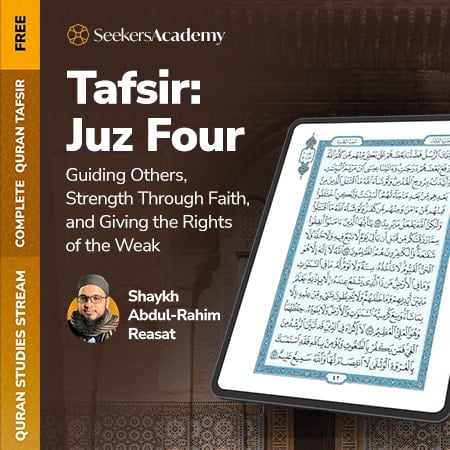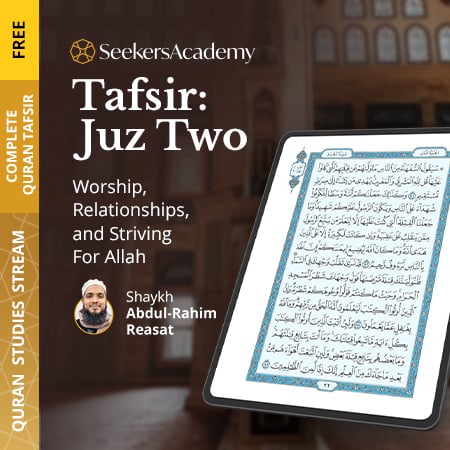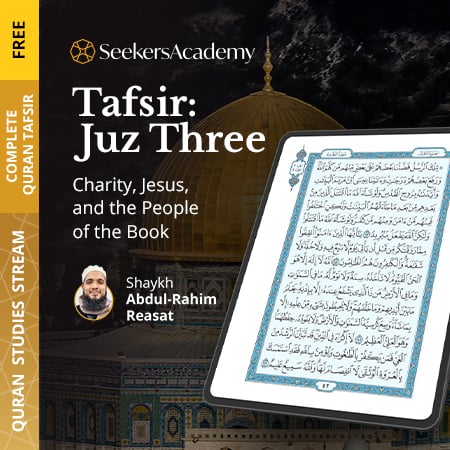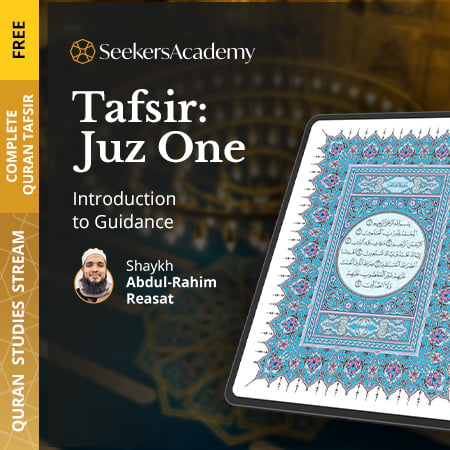
This course concludes the discussion on the latter part of Sura Al ‘Imran, where the attempts of the People of the Book to avoid submission to God are criticised. Next, the Believers are told how to benefit from their belief in Tawhid: though unity amongst themselves, service and benefit of humanity, and devotion to God. Devotion comes from certainty in Allah’s plan and guidance. Ignoring that guidance leads to failure. These lessons are highlighted through the events of the battles at Badr and Uhud, ending with a summary of what devoted servants of God are like.
Next, Sura al-Nisa (Women), also known as the Chapter of Justice, begins to redress the wrongs present in Arabian and other societies: the mistreatment of the weak. Orphans, inheritance, and who one may marry are the first matters to be addressed.
This tafsir is primarily based on a classical and a contemporary work:
‘‘Tafsir Abi al-Su’ud,” by Shaykh al Islam Abu al-Su’ud al ‘Imadi, the great Ottoman Judge, Mufti, and Mufassir. This work is authoritative in the science of tafsir. It was built upon the greatest tasfirs that came before it and had an undeniably strong influence on those which came after it.
• “Al-Tafsir al-Wasit,” by Shaykh al Azhar, Muhammad Sayyid Tanwati, the Grand Mufti of Egypt. This tafsir was written over ten years and is based on some of the most influential works in this science, including the tafsirs of Tabari, Qurtubi, Ibn Kathir, and Alusi. It summarises many of the nuanced and detailed discussions found in other works.


